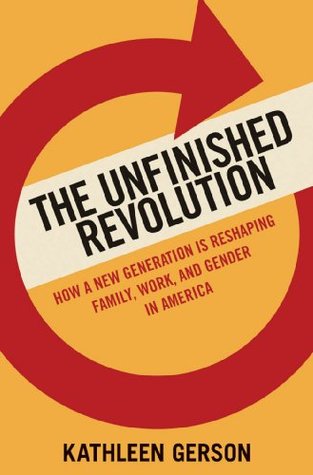Kindle Notes & Highlights
Read between
June 23 - June 24, 2020
Men, no less than women, understand that market work must come first—not just for survival, but also for self-respect.25 Because paid work bestows social status as well as economic rewards, few men can sidestep the pressure to measure their own worth in terms of market value. Those who try to resist must cope with pervasive social cues reminding them of its importance. Since care work remains devalued and largely invisible, market logic leaves men with little incentive or opportunity to shift the balance.26
Autonomous men, like self-reliant women, view independence as a survival strategy, not an ideal. Yet women view self-reliance as a way to avoid dependence on a man while still being able to care for children and forge ties to others.
Few of my interviewees wish to return to a time when work and family “roles” were clear, distinct, and taken for granted.
These men also realized that finding a work-committed partner means taking on more at home. And even though the gender gap in housework persists, many men—and especially younger men—are more involved in domestic work than their fathers. While women continue to do more, men’s contribution to housework has doubled since the 1960s, increasing from about 15 percent to more than 30 percent of the total, while the time they spend caring for children has increased even more, especially because men are now more likely to multitask by combining leisure and child care.
Women increasingly seek men who do housework and whom they consider physically attractive, while men now rank intelligence and education higher than cooking and housekeeping “as a desirable trait in a partner.”34
Egalitarian marriages also appear to have some distinct advantages for today’s couples. Wives are more satisfied and less likely to divorce when they share domestic and paid work with their husbands, and husbands and wives with egalitarian views have higher marital quality and fewer marital problems, even though (or perhaps because) they spend less time together.35
This stance does not mean it is inappropriate to judge families, but rather that judgment should depend on different criteria. Drawing on their own experiences, most prefer to stress the quality of a family’s bonds and the flexibility of its members.
For this generation, relationships, not roles, make families, and ties of ongoing support, not formal legal obligations, bind them. Redefining families in this way better fits the new options and new uncertainties young adults now face. They hope to find a “haven in a heartless world,” but this haven does not take the same form for everyone at all times.38 Indeed, no one type can possibly meet individuals’ varied, developing needs or families’ changing contingencies. In a new twist on the classic argument that homemaker-breadwinner households provide the best “fit” for modern societies,
...more
Young adults now seek a practical morality that balances commitment with autonomy, takes account of situational contingencies, stresses family processes over household forms, embraces diversity, and resists dictating how others should live.
American families have become more fluid as well as more diverse than ever before.1 Regardless of what form a family takes at any moment, it will likely change shape as time passes.
A family’s long-term ability to resolve specific conflicts is more consequential than the form a household takes at any one point along the way.
Across diverse family pathways, a child’s perception depended on whether parents and other caretakers were able to develop flexible gender strategies in the face of crises and challenges.
The common element uniting these different circumstances is the ability and willingness of parents and other caretakers to cross gender boundaries and blur gender distinctions in search of more effective and satisfying ways to bring in money and provide care. Mothers going to work, fathers becoming more involved in child rearing, and others joining in the work of caregiving—all of these efforts helped families overcome unexpected difficulties and create more harmonious homes. They also nourished parental morale, increased a home’s financial security, and provided inspiring models of adult
...more


